- Home
-
Detail Service
Experience Advanced rTMS Treatment in Mumbai and Say No To Depression
Never Fall Trap to Depression



4.9 Clients Rating
"Dr. Prakhar Jain provides answers that are very helpful, well-reasoned and helped me improve my health. Positive response from treatment"
Get the Leading rTMS Treatment in Mumbai
Are you seeking effective treatment for depression or other neurological conditions in Mumbai? Look no further than Dr. Prakhar Jain’s clinic, renowned for its cutting-edge rTMS (Repetitive Transcranial Magnetic Stimulation) therapy.
This non-invasive and highly effective treatment is revolutionizing mental health care, offering hope and relief to countless individuals. Dr. Prakhar Jain brings unparalleled expertise and dedication to every patient, ensuring personalized care and optimal results.
At our clinic, you’ll find state-of-the-art facilities designed to enhance your treatment experience and promote healing.


Understanding Repetitive Transcranial Magnetic Stimulation (rTMS)
Repetitive Transcranial Magnetic Stimulation (rTMS) is a groundbreaking non-invasive treatment that uses electromagnetic pulses to stimulate specific areas of the brain. Unlike traditional treatments, such as medication or electroconvulsive therapy (ECT), rTMS targets precise brain regions associated with mood regulation, making it a highly targeted and effective therapy for conditions like depression, anxiety, and neurological disorders.
The Benefits of RTMs are:
- Non-invasive and painless procedure
- Targeted stimulation of specific brain regions
- Minimal to no side effects
- No need for anesthesia or sedation
- Effective for treating depression, anxiety, and neurological disorders
- Promotes neural plasticity and optimal brain function
Comprehensive rTMS Treatment for Various Conditions
Depression
rTMS offers a targeted approach to treating depression, with magnetic stimulation directly influencing brain activity related to mood regulation. Studies have shown significant success rates, making it a promising alternative for those seeking non-invasive depression treatment options.
Other Conditions
Beyond depression, rTMS has shown effectiveness in addressing a range of neurological and psychiatric conditions. These include migraine, epilepsy, anxiety disorders, and more. The non-invasive nature of rTMS therapy makes it a versatile option for individuals seeking relief from various neurological challenges.
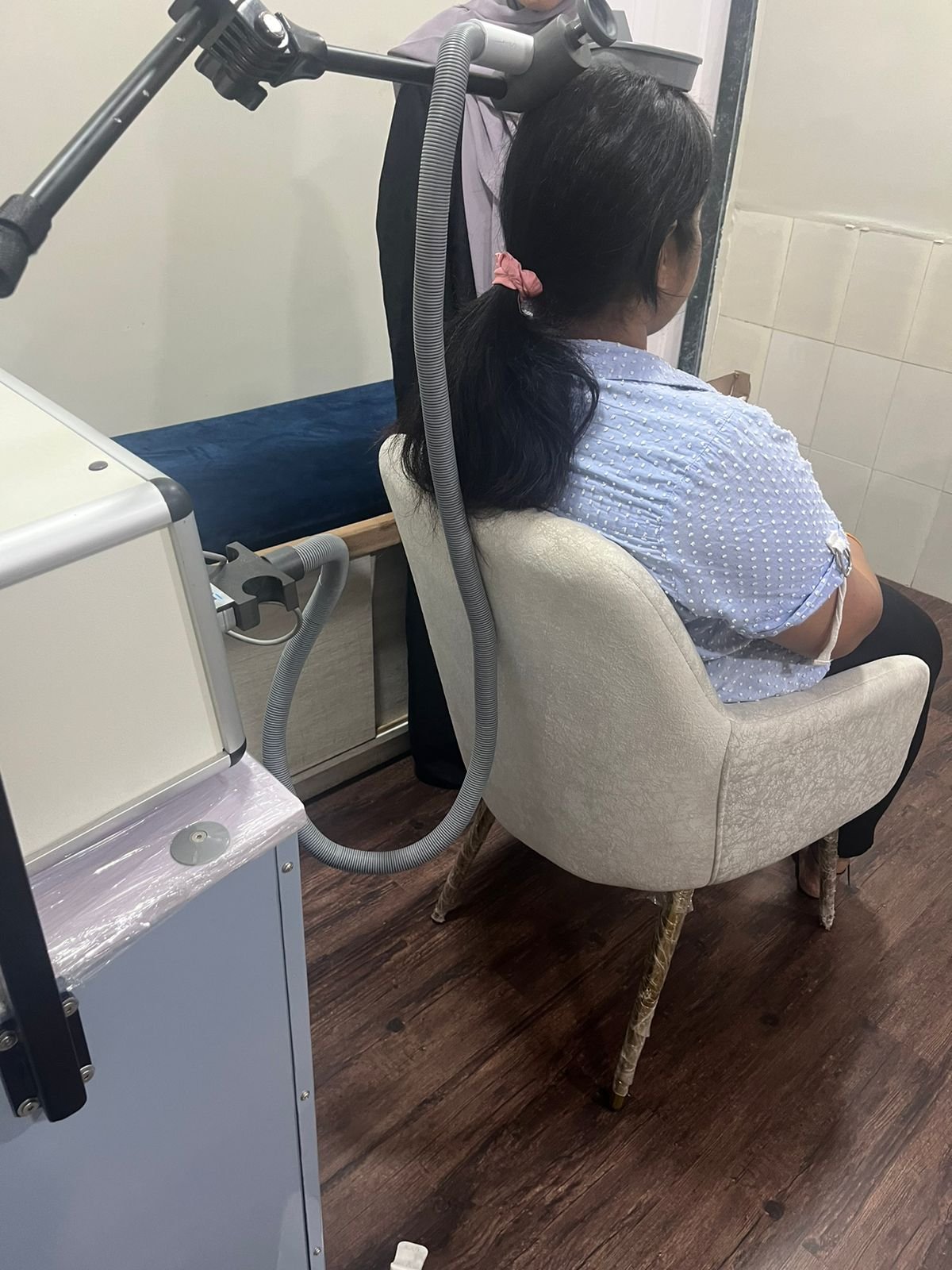
Why Choose Us
Your Trusted Psychiatrist in Mumbai
About Us
Dr. Prakhar D. Jain
MBBS, M.D. (PSYCHIATRY), PDF, EMH (USA)
Child & Neuro Psychiatrist.
Dr. Prakhar Jain is a Psychiatrist in Mumbai, and has an experience of 7 years in this field. Dr. Prakhar Jain practices at Sir JJ Hospital, Wadia Hospital & Royal Clinic in Mumbai. He completed MBBS from Indira Gandhi Government Medical College, Nagpur and M.D. (Psychiatry) from Grant Medical College and Sir JJ Hospital, Mumbai.
+91 9527711155
Whatsapp or Call Now
Scheduling
Schedule a Call or an Appointment
Relaxing
Relax your mind during sessions
Meditation
Meditation is the most common way of solving most mental problems
Why Choose Dr. Prakhar Jain?
Extensive Qualifications
Dr. Jain is a qualified psychiatrist with an MBBS and an M.D. in Psychiatry from prestigious institutions.
Specialized Expertise
Dr. Jain’s practice is equipped to handle diverse mental health needs with utmost confidentiality and professionalism.
Patient-Centric Care
Each treatment plan is tailor-made to fit individual needs, supporting patients through their recovery journey with empathy and respect.
Why MEtal Health
Initiatives by Dr Prakhar Jain
01
IKIGAI
An Integrated Diagnosis, Treatment & therapy center for children with neurodevelopmental disorders like autism ADHD, Learning disability intellectual disability, etc.
02
Sobriety : Deaddiction Services
Effective treatment for substance (Alcohol, Cigarettes, Drugs, etc..) & Behavioral addiction through medicine therapy Rehab Centre.
03
The Psychiatrist Says
A telepsychiatry teletherapy online platform for counseling in the comfort of your home. Connecting the corners to the centers.
04
Centre Of Excellence For Psychiatry & Neurology
Comprehensive management of dementia & other old age issue by Psychiatrist, Neurologist & Neurosurgeon
05
Intimacy Intervention
For males & females having intimate issue leading to poor sexual satisfaction & infertility. Team of Psychiatrist, Gynacologist , Urologist.
06
The Soul Spa
Complete Mental & emotional health solutions through Expert psychiatrists, physiotherapists, and clinical psychologists Utilizing advanced methods like biofeedback, Behavioural Therapy.

How Does RTMS Work?
Understanding the process of repetitive Transcranial Magnetic Stimulation (rTMS) is key to appreciating its effectiveness in treating various mental health conditions. Here’s a step-by-step explanation of how rTMS works, the duration of treatment, and what patients can expect during and after the sessions:
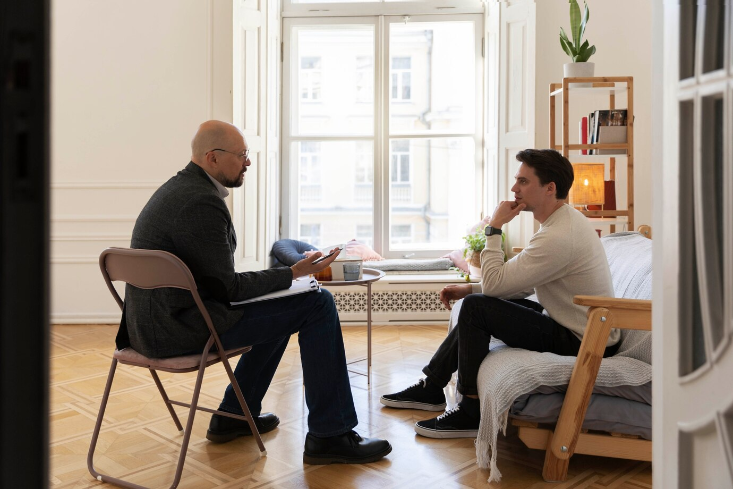
Pre-Treatment Assessment
Before beginning rTMS treatment at our clinic, patients undergo a comprehensive assessment. This evaluation includes a thorough medical history review, psychiatric evaluation, and neurocognitive assessment to determine the suitability and customized approach for each individual.
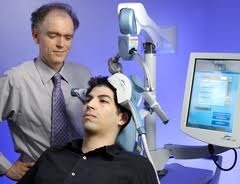
Targeted Brain Stimulation
During an rTMS session, a specialized device delivers magnetic pulses to specific areas of the brain associated with mood regulation and emotional processing. These pulses are painless and non-invasive, stimulating neural activity in targeted regions to modulate brain circuits involved in mood disorders.
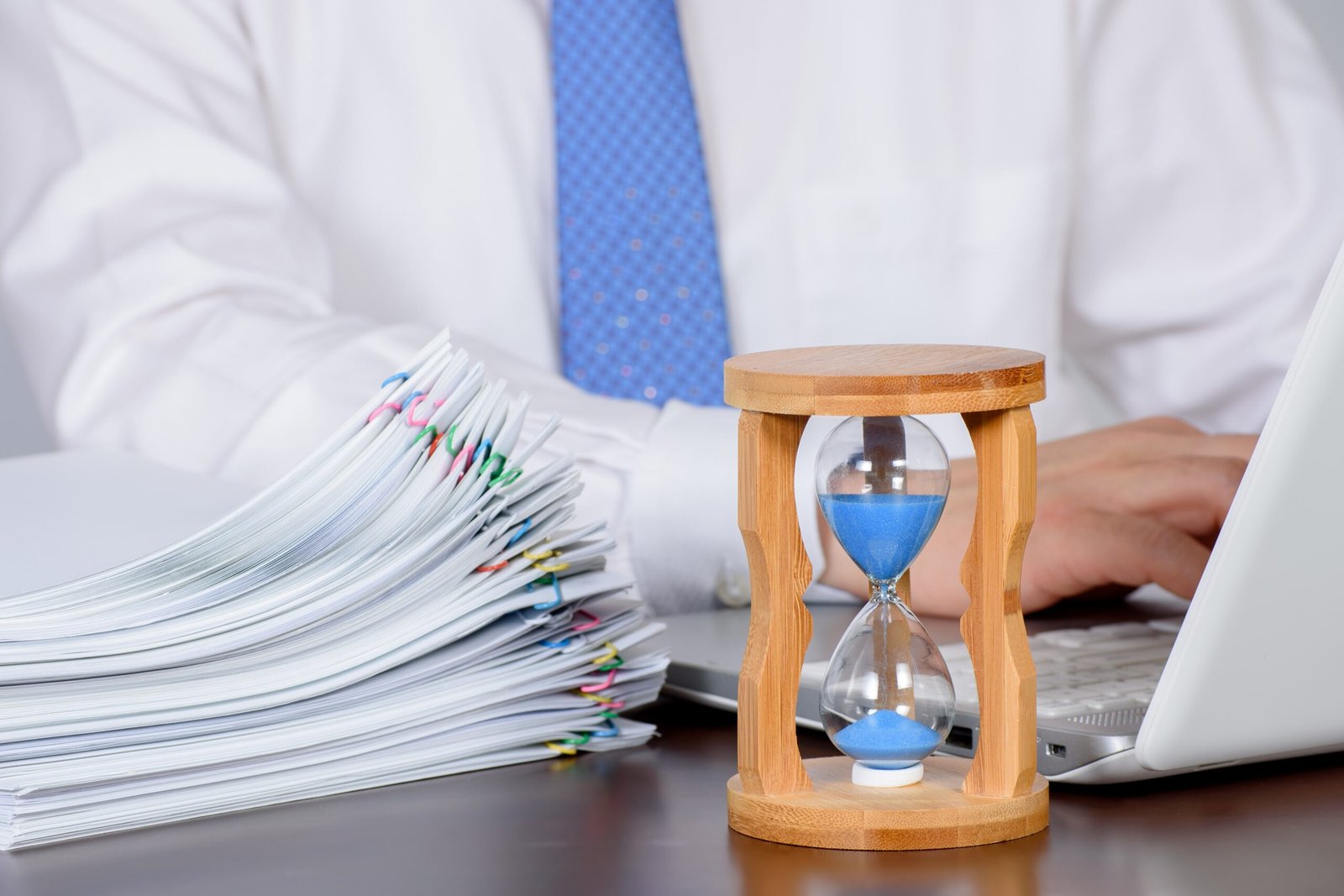
Treatment Duration
rTMS sessions typically last between 20 to 40 minutes, depending on the treatment protocol prescribed by our expert clinicians. The frequency and duration of sessions vary based on individual needs and treatment response, with most patients undergoing daily sessions over several weeks.

Comfort and Safety
Patients undergoing rTMS treatment experience minimal discomfort, with sensations often described as tapping or clicking on the scalp during pulse delivery. The procedure is performed in a comfortable clinical setting, ensuring patient safety and adherence to established protocols.

Immediate and Long-Term Effects
Many patients notice improvements in mood, energy levels, and cognitive functioning following the initial rTMS sessions. These immediate effects often pave the way for long-term benefits, including reduced depressive symptoms, enhanced emotional resilience, and improved overall quality of life.
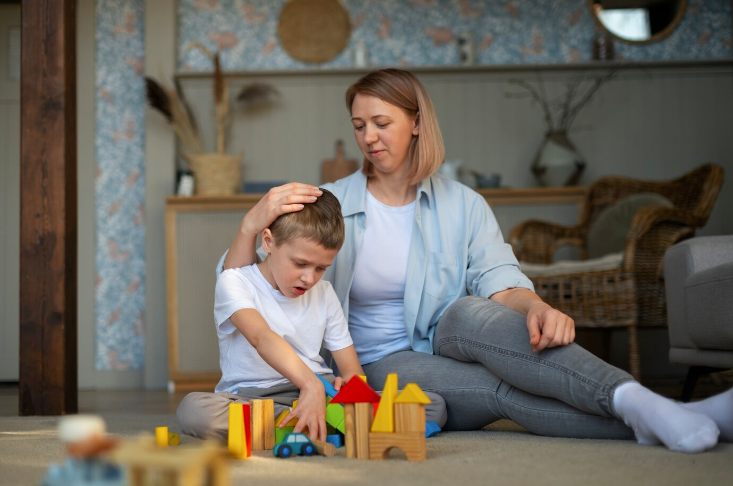
Post-Treatment Monitoring
After completing the prescribed rTMS sessions, patients undergo post-treatment monitoring and follow-up evaluations to assess treatment response, adjust strategies if needed, and provide ongoing support for sustained well-being.
The Advantages of rTMS Over Traditional Treatments
When it comes to treating depression and related mental health conditions, understanding the distinct advantages of repetitive Transcranial Magnetic Stimulation (rTMS) compared to traditional treatments like Electroconvulsive Therapy (ECT) and medication is essential. Let’s delve into why rTMS stands out as a preferred choice:
Non-Invasiveness
Fewer Side Effects
Targeted Approach
Enhanced Treatment Outcomes
Personalized Care
Patient Testimonials and Success Stories
Book Your Online Consultation Today
Mental Health Care at Your Convenience
Information about Online Consultation Services
Dr. Prakhar Jain offers accessible online psychiatric consultations, bringing expert mental health care directly to you, wherever you are in Bangalore or beyond. These sessions are designed to fit seamlessly into your life, offering flexibility and confidentiality.
How to Book an Online Session

Question Answer
Frequently Asked Questions About RTMS Treatment

As you explore the potential of repetitive Transcranial Magnetic Stimulation (rTMS) for managing depression and related mental health conditions, you may have several questions in mind. Here are some common FAQs about rTMS treatment:
rTMS has shown significant effectiveness in treating depression, particularly in cases where traditional treatments like medication have not been fully successful. Clinical studies have reported positive outcomes, with many patients experiencing improved mood, reduced depressive symptoms, and enhanced overall well-being.
Yes, rTMS is considered a safe and well-tolerated treatment option for depression. It is non-invasive and does not involve anesthesia or sedation. Mild side effects such as scalp discomfort or headache during initial sessions are temporary and generally subside as the treatment progresses.
The most common side effects of rTMS are mild and transient, including scalp discomfort or headache during the stimulation sessions. These side effects typically diminish over time and are well-managed by healthcare providers. Serious adverse effects are rare.
An rTMS treatment session typically lasts between 20 to 30 minutes. The duration may vary based on individual treatment plans and the specific protocols used by the healthcare provider.
The number of rTMS sessions needed for optimal results varies for each patient. Generally, a standard course of rTMS involves daily sessions over several weeks, totaling around 20 to 30 sessions. Your healthcare provider will assess your progress and adjust the treatment plan accordingly.
The cost of rTMS treatment can vary depending on factors such as the clinic’s location, the number of sessions required, and any insurance coverage. It’s advisable to consult with the clinic’s administrative staff or your insurance provider to get a clear understanding of the costs involved.
Many insurance plans, including Medicare and private insurance providers, may cover rTMS treatment for eligible patients with a diagnosed depressive disorder that has not responded adequately to other treatments. It’s essential to check with your insurance provider regarding coverage details and any pre-authorization requirements.
Some patients may start noticing improvements in mood and overall well-being within a few weeks of starting rTMS treatment. However, individual response times may vary, and it’s essential to complete the recommended course of treatment for optimal results.
rTMS can be used as a standalone treatment or combined with other therapeutic interventions, such as psychotherapy or medication, depending on the individual’s needs and treatment goals. Your healthcare provider will customize the treatment plan to best suit your unique situation.
While rTMS is generally well-tolerated, not everyone with depression may be suitable candidates for this treatment. Factors such as the severity of symptoms, medical history, and response to previous treatments are considered in determining candidacy for rTMS. A comprehensive evaluation by a qualified healthcare provider is necessary to assess suitability.
Lets Make a Consultation For Free
What’s holding you back? Discover a dedicated and supportive environment for your journey to better mental health. Our comprehensive approach, combined with compassionate care, is designed to empower you on the path to lasting well-being and personal growth.
